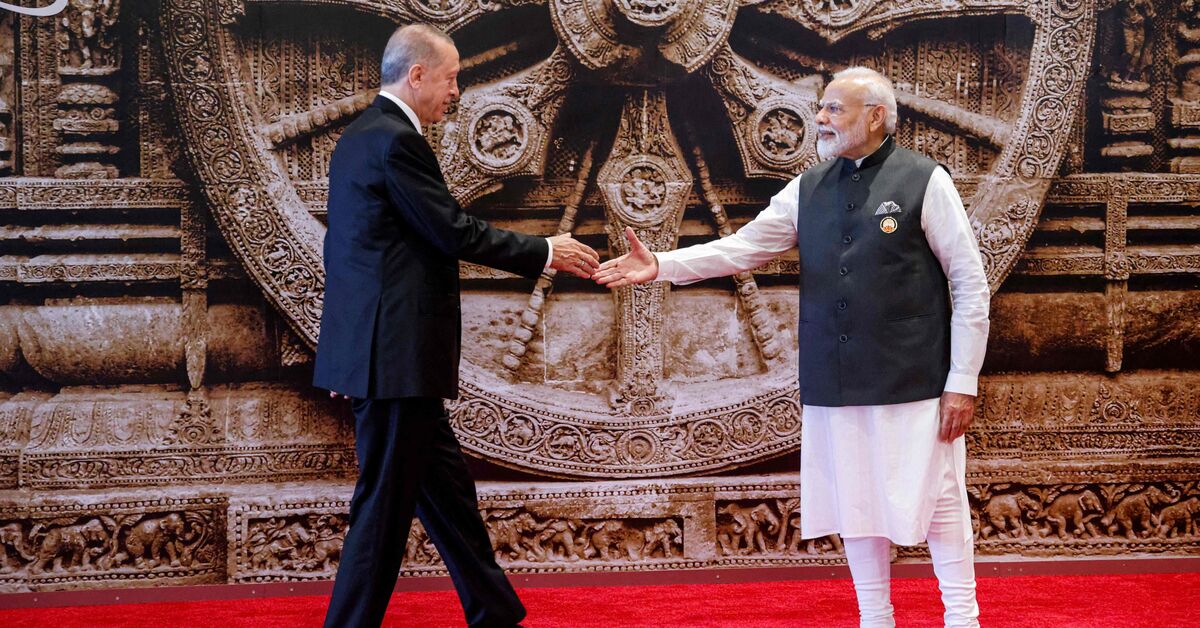After Modi’s win, can Turkey-India ties grow despite Kashmir, IMEC differences?
India’s election results may not seem to be good news for Ankara-New Delhi ties, as there is no love lost between Turkish President Recep Tayyip Erdogan and Narendra Modi, who will stay on as his country’s prime minister for a third term. However, there is room for the two countries to expand their bilateral ties through trade and similar outlooks on global affairs, experts and Turkish officials believe.
Modi’s Bharatiya Janata Party secured 36.56% of the vote for 240 seats out of a total of 543 in India’s lower house, according to the preliminary results of India’s elections that wrapped up June 1. Falling short of a supermajority of 400 seats, Modi needs to form a coalition with allies in his National Democratic Alliance. Nonetheless, he will remain at the helm of the government for a third term.
Turkey-India ties hit one of their lowest points under Erdogan and Modi’s leaderships. The two embattled democracies and rising powers often find themselves on the opposing end of several regional conflicts.
However, the two countries have an interest in mending some of their differences. Experts and officials who have spoken to Al-Monitor point out that trade and tourism between Turkey and India continue to grow. Turkish citizens hold favorable views of India, and Ankara and New Delhi share broadly similar approaches to global affairs, including supporting reforms in the United Nations, combating climate change and advocating for smarter and fairer global trade practices.




)